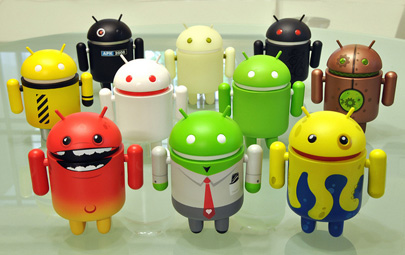Android is open and customizable. iOS is closed, designed for ease. But iPhone users are maturing, demanding more personalization, and Apple might give it to them at WWDC. At D11, Tim Cook said “I think you will see us open up more in the future, but not to the degree that we put the customer at risk of having a bad experience.” Here we’ll look at some Android options Apple could unlock for iOS.
I agree with John Gruber when he speaks of how the average smartphone user has matured. “The design of the iPhone software was entirely informed by the fact that this was a new experience. It needed training wheels. Look around you. We all get it now. iOS-style computing is no longer novel. The training wheels can now come off.” 2007 is very different from 2013 in terms of our mobile literacy, and it’s time iOS reflected that.
Apple’s concern is likely that novice users might download and install an interface-changing app and not know how to remove it — “a bad experience.” Apple would need to determine how to reconfirm configuration changes with users such that veterans don’t get annoyed but newbies don’t get stuck.
If it can strike the right balance, some new capabilities iOS users might gain include:
KEYBOARD REPLACEMENT
The most commonly requested customization we hear from iOS users is the option to replace the default keyboard. Simply shrinking a typewriter keyboard down for a tiny touch screen may not be the most efficient way to type, especially one-handed. Android lets you replace the default tap-to-type version with third-parties keyboards like SwiftKey which learns how you type to predict your words, and the popular Swype gesture typing keyboard. Advanced prediction and the ability to drag your finger between letters can drastically speed up communication
WIDGETS
The iOS lock screen and home screen have begun to look quite static. With so many real-time feeds of information out there, from weather to finance to social, staring at wallpaper or a set of dead icons and folders buries information. Android lets you pull that data out from apps and splay it across your lock and home screens for value at a glance. While Apple has sought to make the iOS interface consistent, more experienced users would appreciate the ability to deviate to their own tastes.
PHONE APP MODIFICATIONS
One under-appreciated advantage of Android is the ability to change the most basic part of a phone — the phone part. Apps can allow you to block certain numbers or entire area codes from calling you or send their calls straight to voicemail — handy for dealing with insistent telemarketers or ex-girl/boyfriends. You can set up custom Do Not Disturb modes that respond to calls or SMS with a pre-written text message. There’s even crowd sourced caller ID apps that pull in what other people have named numbers so you always know who’s calling. Mr. Number was a particularly powerful phone app mod who was rewarded for its innovation by being acquired by WhitePages. Mr. Number doesn't even offer an iOS version because none of this functionality was allowed on iOS 6 or older.
MULTI-USER SUPPORT
Sharing one device between many people is a huge pain on iOS. You all have to use the same instance of the operating system. That means frequent log-ins and outs of different apps, overlapping phone books, a shared camera roll, and big issues for parents who don’t want to let their kids meddle with their whole phone or tablet when they hand it over to let them play a game. Android lets each user customize their account to their liking.
There are plenty of other personalization options on Android, including automation for scheduling tasks; quick controls for brightness, wifi, and airplane mode; the ability to track and manage your battery and data usage by restricting what certain apps can do; and SD cards for slotting in new data.
Of course, Apple isn't fond of just following so we’ll hopefully get some true innovation in iOS 7 atat WWDC tomorrow. But adding some of these features could unlock new opportunities for the developer community, attract more hardcore tech users, and let people feel like the Apple devices they carry everywhere are truly their own.

No comments:
Post a Comment